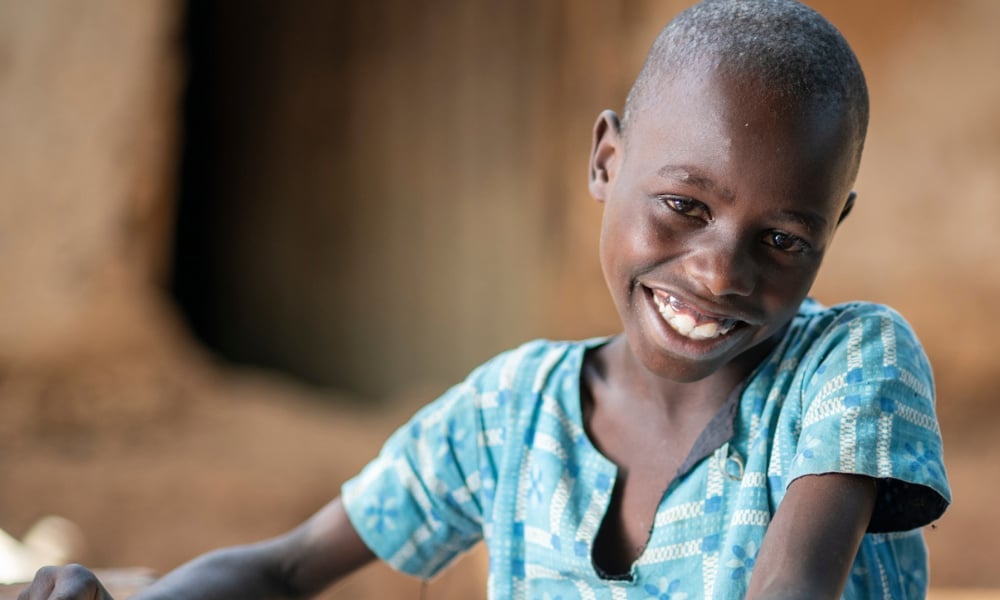Mbaruku's Story
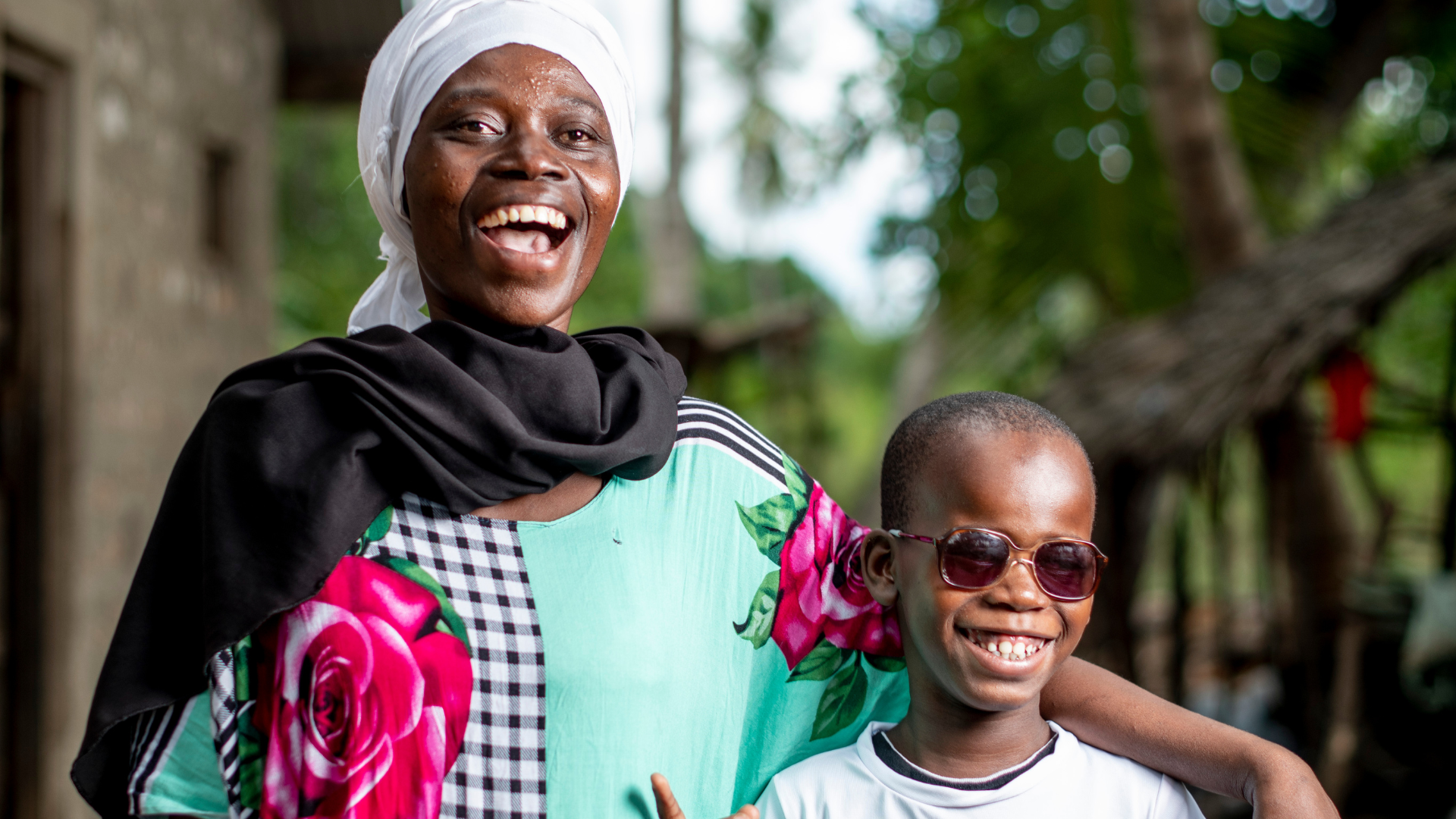
For much of his childhood, Mbaruku struggled with his vision. His eyes often felt irritated, and he couldn’t see clearly. By the time he turned 10, reading a book or seeing the blackboard at school had become impossible.
His mother, Mwajungu, noticed the changes early on. She hoped his vision would improve as he grew older, but it didn’t. Instead, his sight continued to deteriorate, leaving him unable to fully participate in school or play with other children.
Finding a way forward
Mwajungu sought help when she could, saving enough to visit a private eye specialist. The diagnosis was cataracts in both eyes, a condition that could be treated with surgery. But for Mwajungu, a single mother working hard to support her two children by selling cashew nuts, the cost of surgery was far beyond reach.
In Kenya, challenges like this are common, especially in rural areas where access to eye care services is limited. More than 328,000 people in Kenya are blind, and 750,000 more live with visual impairment. Cataracts are the leading cause of blindness, despite being treatable.
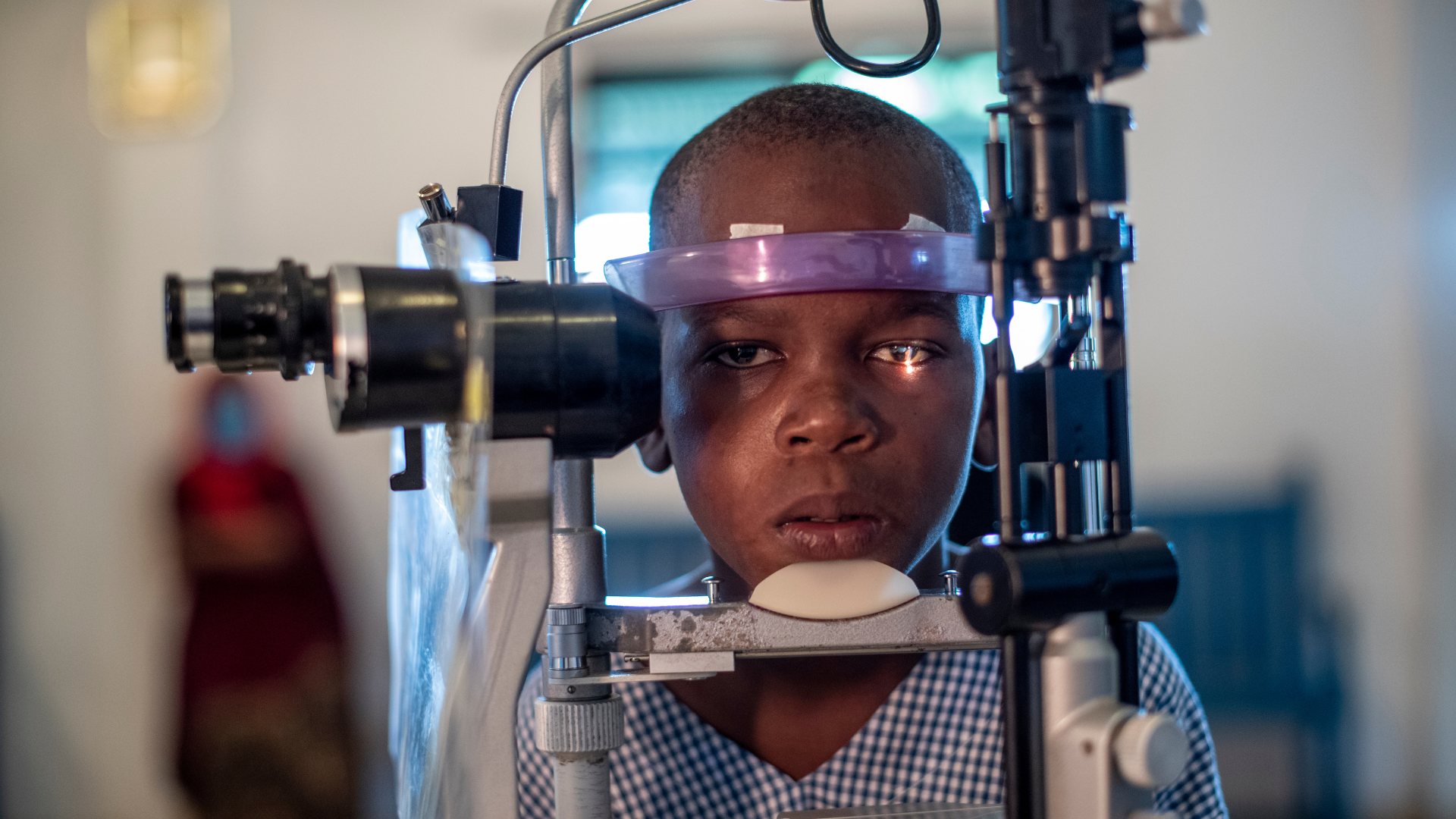
Support arrives
A turning point came when a community health worker trained by The Fred Hollows Foundation visited Mbaruku’s school. The visit included routine eye screenings for students and education about eye health. It was during this visit that Mbaruku’s cataracts were identified, and he was referred for surgery at the Kwale Eye Centre near Mombasa.
The surgery, along with travel expenses, was fully covered through the Foundation’s programs. Mwajungu felt reassured knowing that Mbaruku would receive the care he needed.
When the bandages were removed, Mbaruku’s smile said it all. He could see clearly again, and it was as if a door to new possibilities had opened.
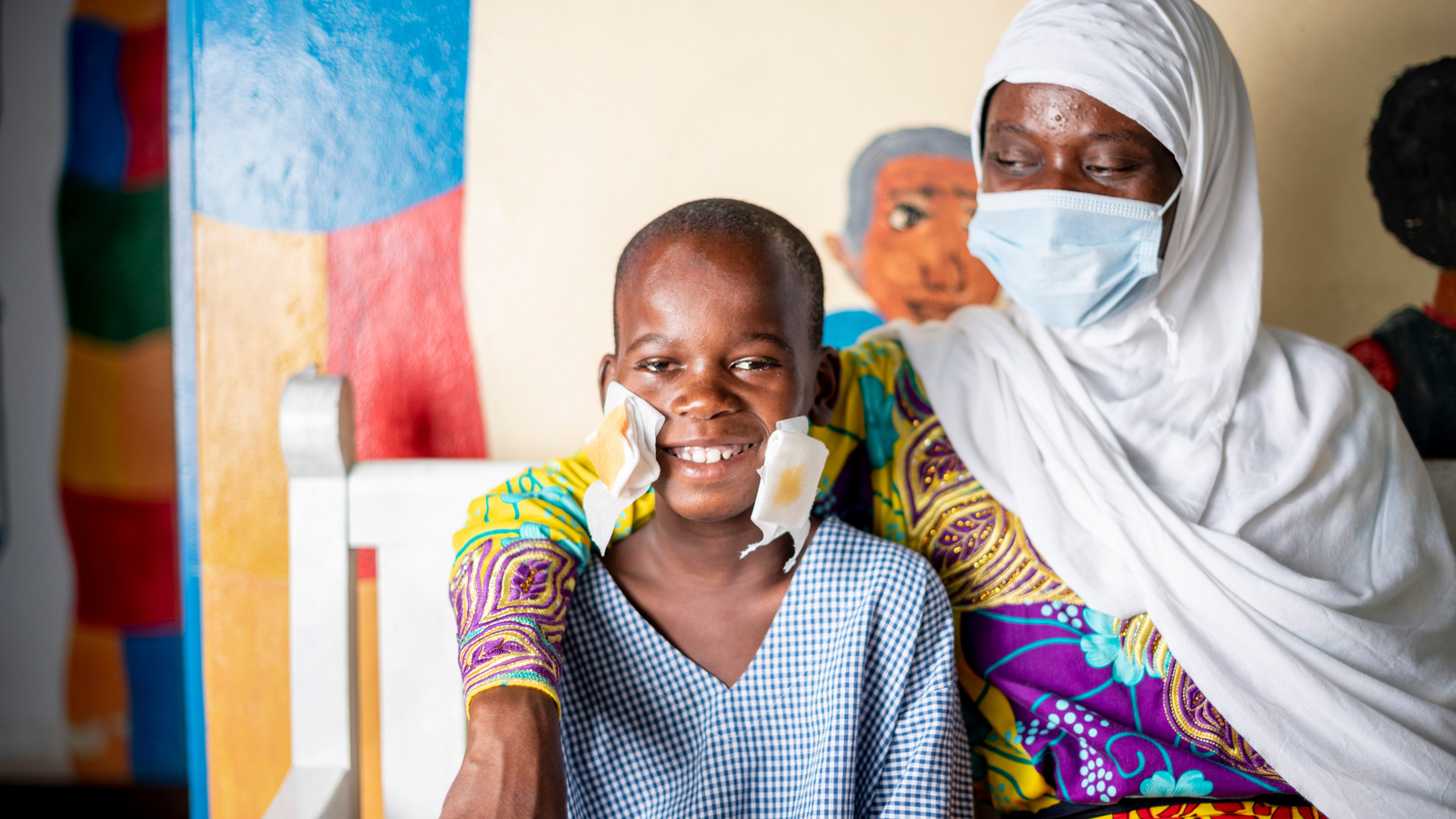
Back to school and play
With his sight restored, Mbaruku returned to school with renewed confidence. He’s now keeping up with his lessons and enjoying time playing soccer with his friends.
For Mwajungu, the change has also meant she can focus on her small business, knowing her son is thriving. “I’m happy to see him doing so well. His future is bright,” she said.
In Kenya, where childhood blindness can have lifelong consequences, access to timely treatment is vital. Nearly 90% of blindness in the country is avoidable, and stories like Mbaruku’s highlight how restoring sight can transform lives.
Related articles
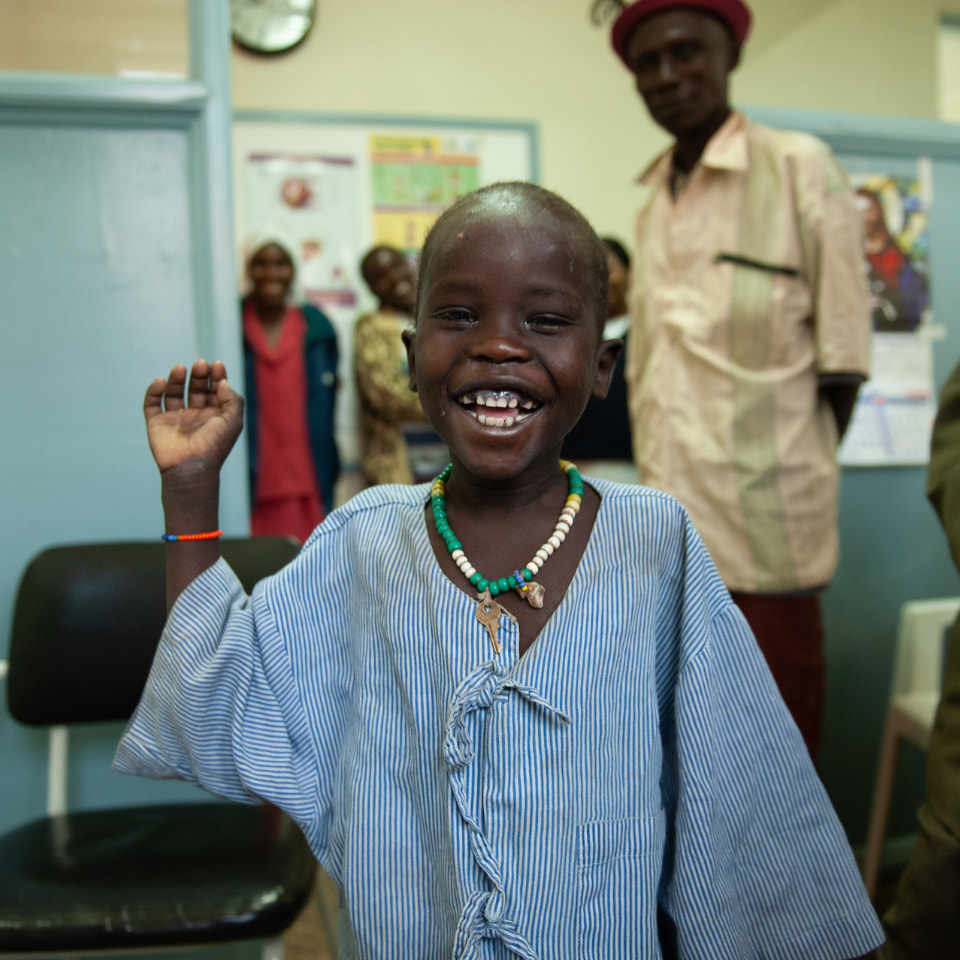
Kipar's Story
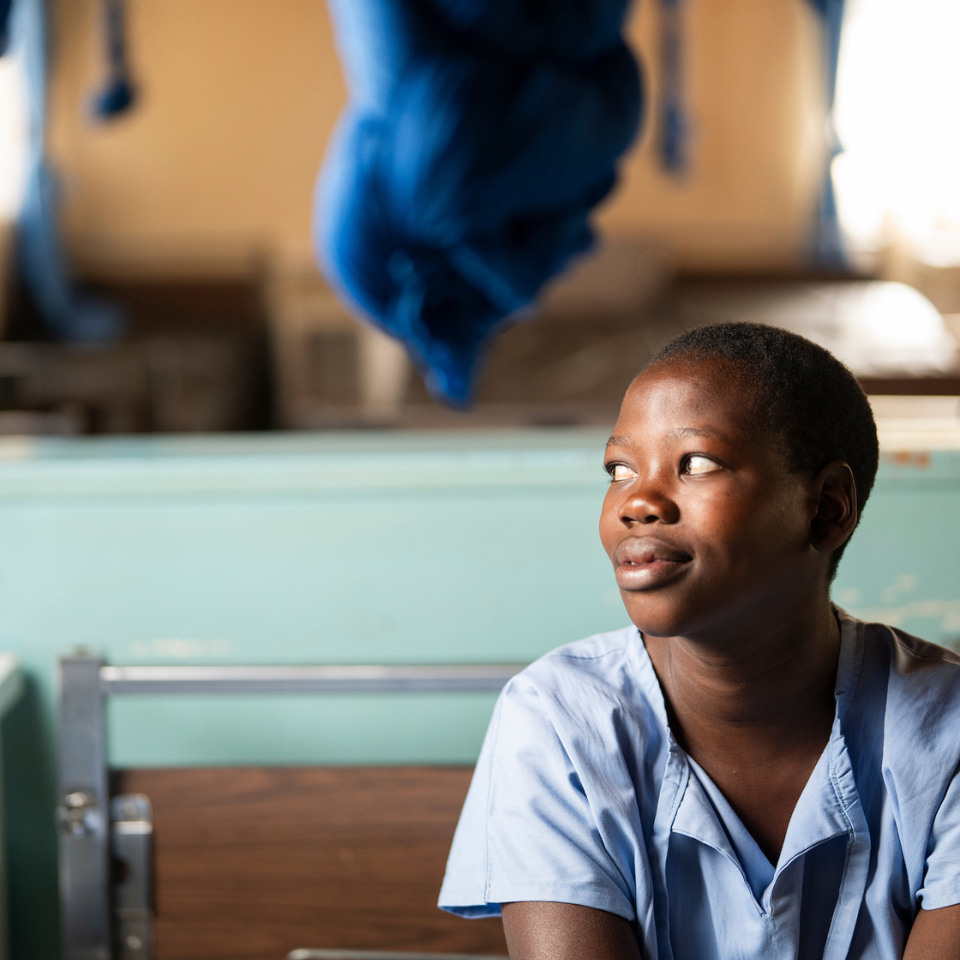
Mitchel's Story
